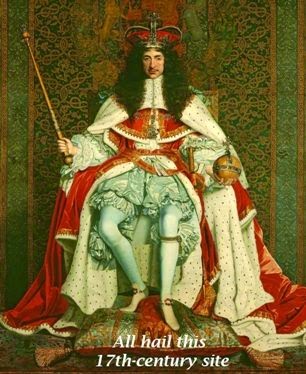Tuesday 29 December 2015
The Tudors are SO 2015. This? Is Where It's All Happening
But the Tudor era is a period of lust, of intrigue and sexy debauchery and passion and jealousy and desire and excellent dresses.... so why don't I write about the Tudors?
It's a funny one. I mean, it'd be easier if I did. I'd be riding on the coat tails of Philippa Gregory and Anya Seton and Hilary Mantel - and everybody knows about Henry VIII and his convoluted love-life, and Elizabeth (and Essex....maybe) and her even more convoluted and intriguing passions. The fashions are gorgeous, the TV producers and the film producers are crying out for bodices to rip open and breeches to undo: why, in the name of creation, am I writing about a period mostly known for its unflattering fashions and spawning the man who coined the term "warts and all"?
And I guess the answer is - because I find principle sexier than unprinciple.
I'm fascinated, intrigued, and ultimately repelled by the English Civil Wars - a war without an enemy, as the Parliamentarian commander William Waller wrote in 1643 to his friend the Royalist commander Ralph Hopton. "We are both upon the stage and must act such parts as are assigned us in this tragedy, let us do it in a way of honour and without personal animosities".
I think it's interesting that many people's perception of the protagonists now is that the King's supporters were fun-loving, free-spirited party animals who loved wine, women and song - 17th century rock stars, in effect - whilst Parliament's were dour, short-haired, joyless and worthy.
It's cobblers, of course - both sides had men of fire and honour, as committed to their cause as each other.
And to me, that's considerably more appealing than a fat old guy with a bad temper and a gammy leg, a sexual predator who abused his power to bribe, flatter and coerce women into his bed and whose politics were - allegedly - based in his codpiece.
I think we love the idea of the Tudors because they're so marvellously larger than life, an almost Machiavellian world of political treachery and intrigue apparently centred on a thing we all understand - sex. We "get" desire, and jealousy, and love-conquers-all; we understand, we sympathise with, a world where a man-monster is a figure of terror as well as desire - almost the ultimate Christian Grey, the sexy uber-CEO who manipulates as well as seduces.
And maybe the idea of a quieter passion isn't so flamboyant. The Wars of the Three Kingdoms don't inflame the public imagination the same way because there is, simply, no sex involved. Oliver Cromwell looked like a potato. (Elizabeth must have seen something worth the having in him, because they had a long and happy marriage and a number of children.) Thomas Fairfax was married to the somewhat volatile Anne for twenty-seven years, and praised her lack of beauty as a virtue in his - somewhat dodgy - poetry. Charles and Henrietta Maria were uxorious enough that she went over to Europe, sold her jewellery, and raised troops for him. Rupert - well, Rupert never married, so let's not mention Rupert's love life. (Suffice it to say it was varied and active.)
It's not that women were not strong, involved, characters in their own right. Why should Brilliana Harley, sending the family plate to safety in boxes marked up as "Cake" to avoid detection by Royalist troops, be any less appealing that poor hapless Anne Boleyn?
Or if your taste runs towards tragic romantic heroines, Bridget Cromwell, travelling across a war-torn country to marry her scarred hero Henry Ireton under siege in Oxford, only to be widowed so short a time later?
Or the King's spymistress, Jane Horwood, intelligencing for him and loving him at one and the same time? (Oh, I hope she had some happiness with him, even if his letters to her portray their liaison as more pragmatic than romantic. Her husband was such a vile, abusive, violent piece of work, I do hope that Jane found love, after a fashion, with Charles - someone who was decent, and honourable, and treated her with courtesy. Not my type, but then what do I know? I'm a Fairfax girl...)
So many stories, and so much passion - but for the spirit, not for the body. For a cause, for a thing which people - both Royalist and Parliamentarian - believed in with, literally, the last drop of their heart's blood.
And as for the fashions? Quite like the Elizabeth of Bohemia look, myself.
Friday 4 December 2015
Subscribe to:
Posts (Atom)
Awarded for Excellence in Research by 17th-Century Specialists

